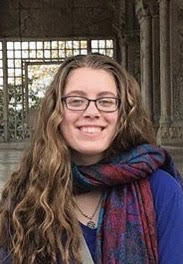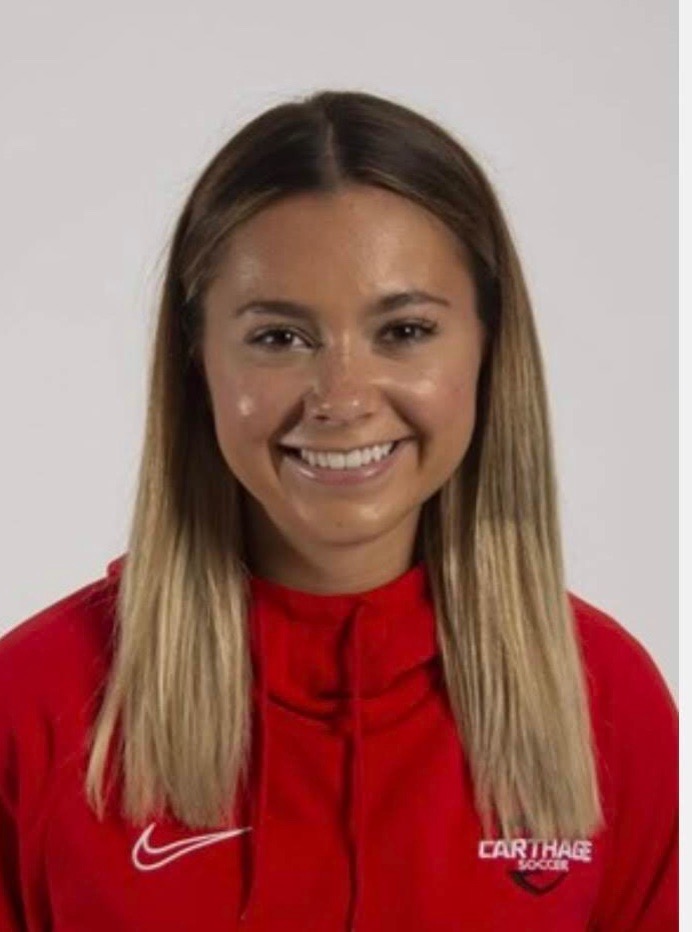Celebration of Scholars
Exploring the CO2 Sensitivity of BI Individuals
 Name:
Shannon Kafura
Name:
Shannon Kafura
Major: Neuroscience
Hometown: Kenosha, WI
Faculty Sponsor: Paul Martino
Other Sponsors: Cook-Snyder, Denise; Miller, Daniel; Miller, Justin
Type of research: Independent research
Funding: External funding from Stress and Motivated Behavioral Institute (SMBI)
 Name:
Benjamin Alt
Name:
Benjamin Alt
Major: Exercise and Sports Science
Hometown: Marshfield, WI
Faculty Sponsor: Paul Martino
Other Sponsors: Cook-Snyder, Denise; Miller, Daniel; Miller, Justin
Type of research: Independent research
Funding: External funding from Stress and Motivated Behavioral Institute (SMBI)
 Name:
Alexandra Arber
Name:
Alexandra Arber
Major: Psychology and Neuroscience
Hometown: Mchenry, IL
Faculty Sponsor: Paul Martino
Other Sponsors: Cook-Snyder, Denise; Miller, Daniel; Miller, Justin
Type of research: Independent research
Funding: External funding from Stress and Motivated Behavioral Institute (SMBI)
 Name:
Aissatou Bah
Name:
Aissatou Bah
Major: Biology and Chemistry
Hometown: Columbus, OH
Faculty Sponsor: Paul Martino
Other Sponsors: Cook-Snyder, Denise; Miller, Daniel; Miller, Justin
Type of research: Independent research
Funding: External funding from Stress and Motivated Behavioral Institute (SMBI)
 Name:
Megan Biewer
Name:
Megan Biewer
Major: Neuroscience
Hometown: Roselle, IL
Faculty Sponsor: Paul Martino
Other Sponsors: Cook-Snyder, Denise; Miller, Daniel; Miller, Justin
Type of research: Independent research
Funding: External funding from Stress and Motivated Behavioral Institute (SMBI)
 Name:
Mackenzie Counard
Name:
Mackenzie Counard
Major: Neuroscience and Psychology
Hometown: Brussels, WI
Faculty Sponsor: Paul Martino
Other Sponsors: Cook-Snyder, Denise; Miller, Daniel; Miller, Justin
Type of research: Independent research
Funding: External funding from Stress and Motivated Behavioral Institute (SMBI)
 Name:
Kevin Dunn
Name:
Kevin Dunn
Major: Biology
Hometown: Madison, WI
Faculty Sponsor: Paul Martino
Other Sponsors: Cook-Snyder, Denise; Miller, Daniel; Miller, Justin
Type of research: Independent research
Funding: External funding from Stress and Motivated Behavioral Institute (SMBI)
 Name:
Clarence Graham
Name:
Clarence Graham
Major: Neuroscience
Hometown: Rio, WI
Faculty Sponsor: Paul Martino
Other Sponsors: Cook-Snyder, Denise; Miller, Daniel; Miller, Justin
Type of research: Independent research
Funding: External funding from Stress and Motivated Behavioral Institute (SMBI)

Major: Biology
Hometown: Mount Pleasant, WI
Faculty Sponsor: Paul Martino
Other Sponsors: Cook-Snyder, Denise; Miller, Daniel; Miller, Justin
Type of research: Independent research
Funding: External funding from Stress and Motivated Behavioral Institute (SMBI)
 Name:
Jessica Sendef
Name:
Jessica Sendef
Major: Neuroscience and Psychology
Hometown: Oswego, IL
Faculty Sponsor: Paul Martino
Other Sponsors: Cook-Snyder, Denise; Miller, Daniel; Miller, Justin
Type of research: Independent research
Funding: External funding from Stress and Motivated Behavioral Institute (SMBI)
 Name:
Samantha Sisto
Name:
Samantha Sisto
Major: Neuroscience
Hometown: Crystal Lake, IL
Faculty Sponsor: Paul Martino
Other Sponsors: Cook-Snyder, Denise; Miller, Daniel; Miller, Justin
Type of research: Independent research
Funding: External funding from Stress and Motivated Behavioral Institute (SMBI)
Abstract
EXPLORING THE CO2 SENSITIVITY OF BI INDIVIDUALS
S. Kafura,2, B. Alt4, M Counard,2,3, S. Sisto2, J. Sendef2,3, R. Bicknase1, K. Dunn1,2, A. Arber2, M. Biewer2, A Bah1, C. Graham,2, B. Hart1, D. Cook-Snyder2, J. Miller1, D. Miller2, P. Martino1
1Department of Biology,; 2Department of Neuroscience, 3Department of Psychology, 4Department of Exercise Science
Celebration of Scholars 2020: Exposition of Student & Faculty Research, Scholarship & Creativity
Behavioral inhibition (BI) is believed to be a genetically determined trait that affects about 33% of the population. These individuals tend to respond to stressful situations differently than Non-Behaviorally inhibited (Non-BI) individuals. In our laboratory, we have been able to display differences in how BI people respond to CO2 compared to Non-BI people through our current studies comparing breathing, heart rate, and blood pressure. The next step is to demonstrate how sensitive BI individuals are to CO2 compared to Non-BI individuals. To demonstrate this, our group will expose (n = 50) participants to a 15 minute control period to establish baseline breathing, heart rate, and blood pressure followed by a five minute period breathing each of the 3 levels of elevated CO2, which include 3%, 5%, and 7%, respectively. We will then create a slope of their CO2 sensitivity (inspired minute ventilation (L/min)/ETCO2). We hypothesize that the magnitude by which BI individuals respond to elevated CO2 is different than that of Non-BI people. Initial results from pilot data indicate that NBI individuals (n=2) have a slope of 0.4695, and BI individuals (n=1) have a slope of 0.277. This provides evidence supporting our hypothesis that BI individuals are responding differently to CO2.
This study is supported by Dr. Rick Servatius and Dr. M. Todd Allen from the Stress and Motivated Behavioral Institute (SMBI).
Submit date: April 3, 2020, 2:31 p.m.
